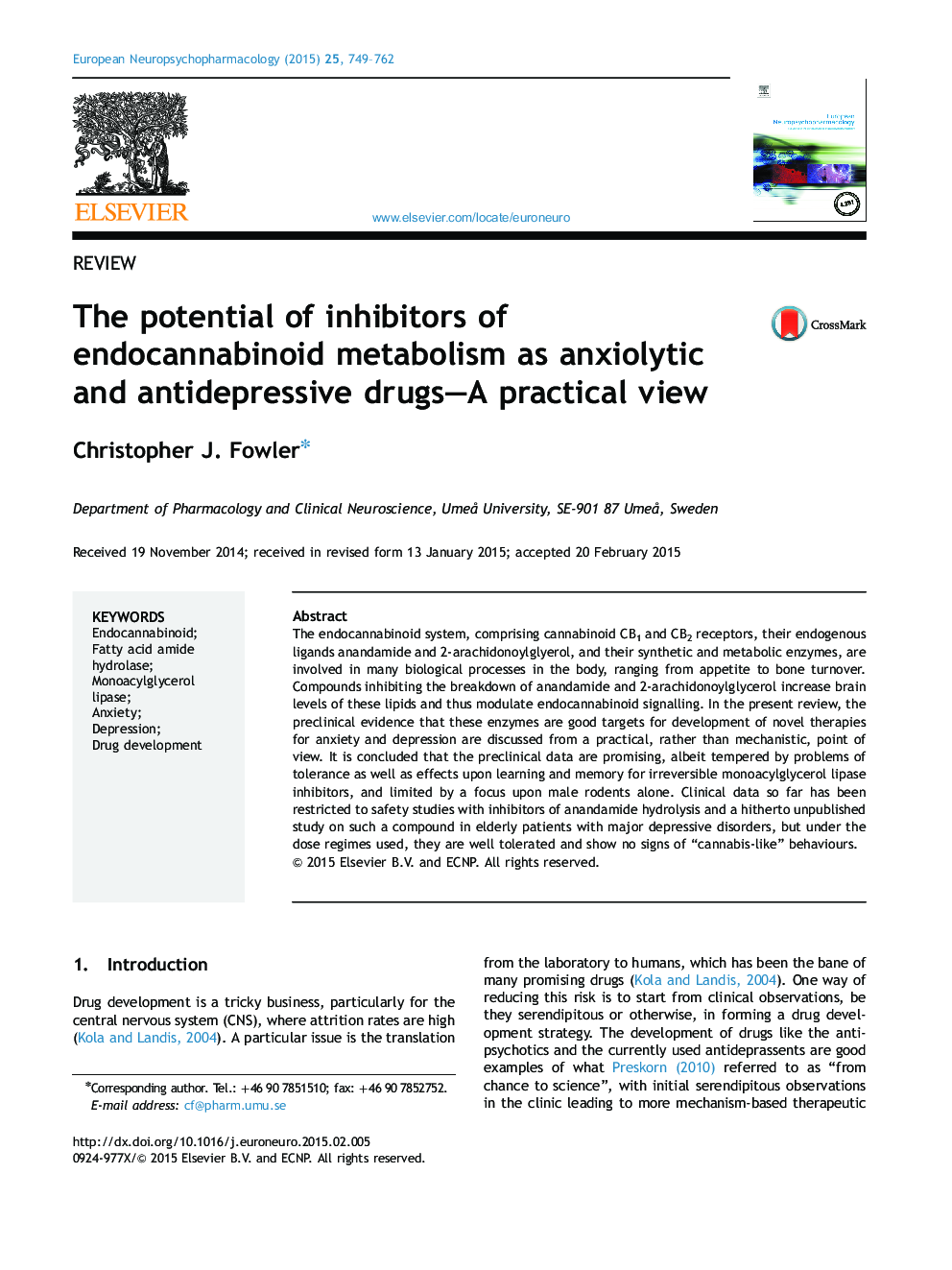| Article ID | Journal | Published Year | Pages | File Type |
|---|---|---|---|---|
| 320105 | European Neuropsychopharmacology | 2015 | 14 Pages |
The endocannabinoid system, comprising cannabinoid CB1 and CB2 receptors, their endogenous ligands anandamide and 2-arachidonoylglyerol, and their synthetic and metabolic enzymes, are involved in many biological processes in the body, ranging from appetite to bone turnover. Compounds inhibiting the breakdown of anandamide and 2-arachidonoylglycerol increase brain levels of these lipids and thus modulate endocannabinoid signalling. In the present review, the preclinical evidence that these enzymes are good targets for development of novel therapies for anxiety and depression are discussed from a practical, rather than mechanistic, point of view. It is concluded that the preclinical data are promising, albeit tempered by problems of tolerance as well as effects upon learning and memory for irreversible monoacylglycerol lipase inhibitors, and limited by a focus upon male rodents alone. Clinical data so far has been restricted to safety studies with inhibitors of anandamide hydrolysis and a hitherto unpublished study on such a compound in elderly patients with major depressive disorders, but under the dose regimes used, they are well tolerated and show no signs of “cannabis-like” behaviours.
